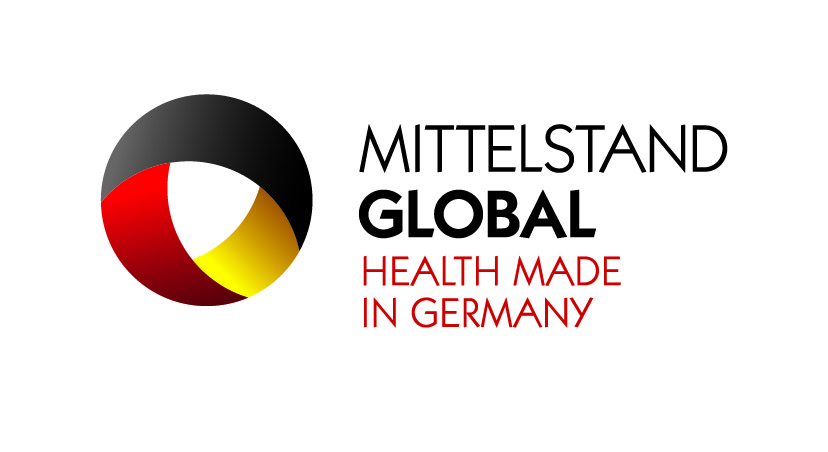Efficient management of cancer, chronic cardiovascular, and kidney diseases
December 2023
Mosaiques has informed all institutions in many contries, who are responsible for the health of the population, about the possibility of efficient management of cancer, chronic cardiovascular, and kidney diseases, the biggest problem for healthcare systems worldwide:
"Efficient management of cancer, chronic cardiovascular, and kidney diseases, the biggest problem for healthcare systems worldwide, is now possible! Time to act!
80% of all healthcare costs are attributable to these diseases. Since 1989, the UN has put chronic diseases on a par with Ebola as a "threat to Western civilization". Without these underlying diseases, which are usually recognized far too late, there would be no severe Covid-19 pandemic and no other viral pandemics. In addition, environmental damage and contaminated food chains also initiate inflammation in the body, especially in the blood vessels (in the endothelium) and as a trigger for fibrosis. The demographic effects are an additional burden for Western healthcare systems and China.
Further forecasts are gloomy: by 2050, the number of chronically ill people worldwide will double to 3 billion. This also applies to diabetes. For example the UAE, where more than half of the population already suffer from diabetes (~30%), hypertension, kidney and cardiovascular disease (40%), is threatened with extinction of the local population. In Germany, men already die 8 years and women 4 years earlier than in other German speaking countries (Federal Institute for Population Research). Life expectancy is also declining in the USA. Both healthcare systems are among the most expensive ones worldwide.
Overtreatment, as observed for prostate cancer with 90% unnecessary biopsies and operations (ProtecT study), which has already been corrected in the USA but continues in EU countries, especially Germany, also applies to other specialist areas (angiographies in cardiology, biopsies in nephrology, ERCP in gastroenterology, etc.). A correction via legal framework or administrative interventions has only been made in the USA for prostate cancer treatment.
The status quo
The rigid incentive system with its favouring late treatment will exacerbate the existing underuse of early detection and treatment of chronic diseases to prevent organ damage. Incentives to improve early treatment, e.g., adjusting insulin treatment of diabetic patients in order to prevent associated diseases (CKD, CVD) have hardly been successful. At this stage, the associated diseases are already manifest, they are not recognized in time with the current diagnostics. Even the current blood pressure control with the effective drugs available is often inadequate. The necessary intensive medical monitoring of patients for individual adjustment to drugs that act on different proteins requires multiple office visits and would then still contain more conjecture than biological knowledge. The high number of heart attacks, CHD and kidney disease, the "hostage of mankind", cannot be reduced efficiently in this way.
The decoded proteome solves the diagnostic dilemma and societal health problems in chronic diseases
The dilemma is that chronic cardiovascular and kidney diseases can only be detected with the methods currently used (reduced eGFR and/or albuminuria) on the basis of the presence of massive organ damage. At this point, the chronic diseases progress dynamically and cannot be stopped, at best progression can be somewhat slowed. The affected organ parts are irretrievably lost and a cure is impossible. Early detection and efficient therapy require timely, highly qualified diagnostics for precise therapy determination.
The disease-specific changes in the cells are controlled exclusively by proteins. Drugs only target proteins and cannot act on dead cells, as is the case with the current late detection of the diagnostic parameters used to date.
Mosaiques' proteome analysis has decoded the cellular molecular level by deciphering the proteome and detecting chronic diseases such as cardiovascular and kidney diseases at an early stage, enabling timely drug intervention and preventing manifest organ damage.
Various approved drugs are available to prevent the dynamic, progressive loss of organ function in these chronic diseases: Beta blockers, ACE inhibitors, sartans, statins; SGLT2 inhibitors, GLP1-RA, aldosterone antagonists, etc.
The disease-specific proteome changes, for example in CKD, affect several hundred proteins. The impact varies from person to person; 150 proteins are affected in one patient, 180 in another. This impairs the effective use of medication, as each drug only acts on certain proteins. If these proteins are not involved in the disease development in an individual patient, then the particular drug cannot work in that patient!
Only the proteome analysis of mosaiques can effectively predict which drugs, which all target different proteins, are best suited for an efficient timely therapy to prevent organ damage, heart attacks etc.
Mosaiques’ knowledge on the proteome of also enables prediction of the development and formation of cancer already with the initial defects in the cellular signalling system. These degenerated, pre-malignant cells, which can no longer be effectively corrected by the body's endogenous mechanisms, form the basis for the development of cancer in the respective organs. Proteome analysis maps this entire molecular process of tumour onset and progression. Proteome analysis only offers tests whose clinical benefit has already been proven and approved in evidence-based studies.
Development and worldwide scientific acceptance of proteome analysis
Since 2002, more than 100 clinical evidence-based studies have been conducted by over 1,000 renowned physicians and scientists from cooperating university hospitals worldwide to demonstrate the benefits for each individual indication. Since 2005, over 30 studies have been funded by the EU Commission. Even then, it was obvious that genomics (which affects around 10 million patients worldwide) was generally applicable to rare diseases and proteomics to chronic diseases and their definition, specification and early detection, which affect 2 billion patients worldwide. The "MIT", the "Forum Health Research" (Helmholtz, Fraunhofer, university hospitals, and many others) name mass spectrometric proteome analysis as the key to success in efficient healthcare.
More than 20 proteome-based clinical tests, most of which have emerged from EU funding, have now been approved for the early and accurate detection of a wide range of diseases. In 2016, the FDA issued a "Letter of Support" for use in the context of molecular drug testing for chronic kidney disease. The German Diabetes Society, the ERA-EDTA former presidents, the Steno Center in Copenhagen and other renowned research institutions worldwide have spoken out in favour of the early detection of chronic diseases using proteome analysis.
In the meantime, meta-analyses and economic studies in Europe and the USA (e.g. Thornton Snider et al, PLoS One. 2019 May 31;14(5):e0217487 and Critelis et al, Nephrol Dial Transplant. 2018 Mar 1;33(3):441-449), all of which point to the urgency of using proteomic analysis for accurate and early detection of chronic diseases to fundamentally improve healthcare and significantly reduce the cost burden. This will maintain social peace and credibility in politics in all countries of the world.
TIME TO ACT!
The future of healthcare through proteomics
Poking in the “haystack of uncertainty” in diagnostics and drug development has come to an end thanks to proteomic complex recognition of all proteins involved in the disease process on which drugs act alone. This revolutionary and groundbreaking aspect of mosaiques' proteome analysis, its unique selling point and the paradigm shift in individualized diagnostics and therapy, is needed worldwide. Diseases such as CVD and CKD are being defined and recognized at an early stage for the first time, so that existing drugs with their specific proteomic mechanisms of action can be used in a timely and targeted manner. Until recently, the comprehensive disease-specific proteome was not known. Drugs only targeted one or a small number of proteins and the cellular mechanism was able to re-develop the disease within a few months, using other proteins whose involvement was unknown and/or not targeted. This is the first qualified step towards personalized medicine.
The scientific substance of the proteome database, which has been built up over the last 20 years with around 100,000 qualified proteomic data sets of the respective diseases, is now being used specifically for the search for qualified active substances. Deciphering the wealth of mechanisms of action of many different active ingredients from nature would take decades using conventional methods. By using artificial intelligence in combination with proteomics data, this is possible in just a few days and is already being tested in simulations on the disease-specific proteome using the database at a level of preclinical knowledge not previously thought possible.
Lifestile products such as the weight loss injection in its symbiosis of lifestyle and clinical benefit (insulin stimulation) or new muscle-building active ingredients that are intended to alleviate skeletal pain through weight loss and muscle building will no longer be chance finds with the knowledge of the disease-specific proteome. mosaiques is already working with AI companies linked to major US companies. The future of personalized medicine has already begun.
A central element in chronic diseases appears damage to the blood vessels (endothelium) and fibrosis and is mapped in a large number of specific proteins, the collagens. Endothelial damage and fibrosis are mutually dependent and precede chronic diseases. Only Mosaiques' proteome analysis defines and recognizes all these factors from a single sample. At the same time, this subclinical damage is the cardinal problem for triggering a pandemic in viral outbreaks. This current state of medical knowledge must be used immediately to save millions of lives; TIME to ACT !!!!"



